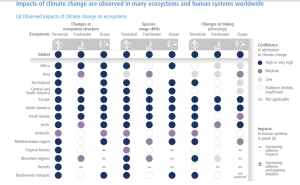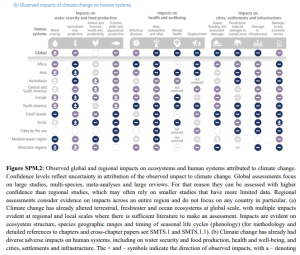Despite Floridians experiencing the increasing harm caused by the climate crisis and environmental injustice for decades, we continue to see inaction from our lawmakers. Recent events demand action.
Over the past several months, the United Nations Intergovernmental Panel on Climate Change released a series of three reports highlighting the actual costs of climate inaction on our ecosystems, infrastructure, and our beautiful and vital waterways. The Intergovernmental Panel on Climate Change (IPCC) is the international body for assessing the science related to climate change. The IPCC was set up in 1988 to provide policymakers with regular assessments of the scientific basis of climate change, its impacts and future risks, and options for adaptation and mitigation. The IPCC assessments provide a scientific basis for governments to develop climate-related policies and embody a unique opportunity to provide rigorous and balanced scientific information to decision-makers because of its scientific and intergovernmental nature.
More than any prior iteration, these newly released reports highlight the dire climate reality and the impacts on overall health and well-being. It also reaffirms the unjust and well-documented fact that the worst consequences of this crisis are already and will continue to be felt most by the low-income and communities of color worldwide who have contributed the least to climate change. To meet the needs this report demands, our lawmakers must begin passing transformative legislation that centers on environmental and racial justice.
Florida was explicitly mentioned in the IPCC report on several occasions. With our 8,436 miles of vulnerable shoreline, we must take direct and immediate action. The scientists cite: the tidal flooding, fed by rising seas, Higher temperatures that have ushered toxic algae blooms into inland waterways, causing devastating damage to our fish and repelling us from our favorite local watering holes. Finally, the warmer ocean waters exacerbate the bleaching that is killing coral reefs.
From Page 11 of the Report Summary for Policymakers:
It is clear from the graphs above that the decades of inaction have exacerbated the climate emergency. The fossil fuel industry has political influence, money, disinformation, and lobbying power. With their thumb on the scales, leaders have delayed the robust changes needed. And now we are paying for those decades of inaction. Governor DeSantis, our Senators Rick Scott and Marco Rubio, and legislative leaders have routinely prioritized polluters over the people they serve by rejecting community calls for clean energy and failing to ban offshore drilling along Florida’s coasts.
The climate crisis is not a tomorrow problem — it’s now. We need rapid, swift, and bold action now. The time for environmental justice is not a problem for the next generation; we must act now. The opportunity window to begin Florida’s steady transition to clean energy is still wide open, but time is running out.
If lawmakers don’t act immediately to cut greenhouse gas emissions, people will continue to feel the impacts of rising seas, hotter days, and stronger storms. The climate crisis is not a science problem; it is a political problem. Our lawmakers’ choices today will determine the kind of world we leave to the next generation.
That’s where you come in! We need your help holding our lawmakers accountable. We cannot overcome the climate crisis without local, state, and federal action. For example: Florida Senators Marco Rubio and Rick Scott must work with their U.S. Senate colleagues to enact the House-passed $555 billion investments in climate, jobs, and justice, a crucial step in meeting our existing climate commitments. At the state level, we must continue to combat the anti-solar legislation threatening to upend the progress and potential of Florida’s bright solar future.
While the reality is upsetting and our time to act is rapidly diminishing, Conservation Voters must all remain determined and united. We don’t have a moment to waste, and our leaders must get this right. Join FCV Education Fund today to learn more about how you can get involved.






